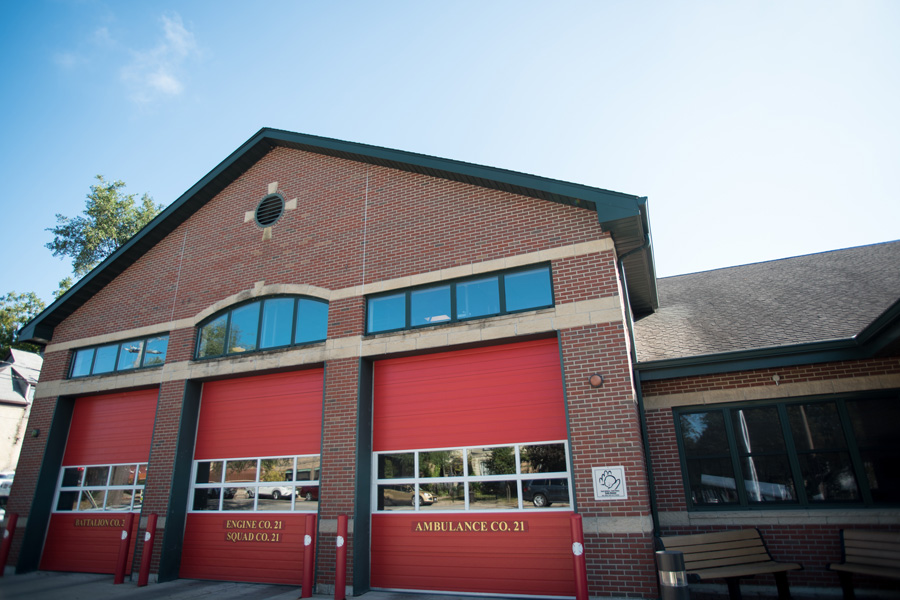City renegotiates with Evanston unions due to COVID-19
Colin Boyle/Daily Senior Staffer
The Evanston Fire Department. The International Association of Firefighters (IAFF) Union concluded new contract negotiations this past Tuesday.
October 1, 2020
Evanston has renegotiated its contracts with the city’s unions as the pandemic continues to take a hit on the city’s economy.
Around 80 percent of all of the city’s roughly 750 employees belong to a union. The city currently has four union contracts: one with the American Federation of State, County, and Municipal Employees (AFSCME), two with the Fraternal Order of Police (FOP), and one with the International Association of Firefighters (IAFF).
The largest of these unions is the AFSCME union, which includes hundreds of employees, from library workers to sanitation workers.
The FOP union is split into two divisions: sergeant and patrol. While the sergeant contract only includes around 25 workers, the patrol contract includes all other members of the Evanston Police Department, including 311 operators and tow truck drivers. Both handle negotiations separate from one another.
“The relationship between the city and the unions is a civil cooperative relationship,” Evanston Human Resources Manager Jennifer Lin said. “As an HR division manager, I very much appreciate the relationship I have with all four of the unions.”
There have not been any major issues between the city and any of the unions in recent history, and all of the unions were able to properly and civilly negotiate their 2019-2022 contracts before the January 2019 deadline, she said.
However, the city has had to renegotiate these contracts due to COVID-19.
Early into the pandemic, the city approached the various unions and explained the need for budget cuts, and how this would affect the unions. For non-union workers, the city’s tightened budget means they will all have to take 10 furloughed days and a higher health insurance premium starting in 2021, Chief Financial Officer Hitesh Desai said. Unions would have to work with the city to renegotiate their contracts.
“This just happened because of COVID, but everyone was locked in until 2022,” Desai said.
In renegotiating, the first union the city came to an agreement with was AFSCME, who agreed to take 10 furloughed days, similar to the non-union workers’ situation. However, they will not see an increase in premiums, Desai said.
The IAFF union fully concluded their negotiations this week, as the city council passed their new contract on Tuesday. They took a slightly different deal from AFSCME. Desai said they agreed to take no wage increases in 2021 and 2022, and in return, the IAFF union was able to avoid the layoff of approximately three firefighters as well as other concessions from the city.
Even though these negotiations started months ago, no agreement has been made with either of the FOP unions, Desai said. While Desai said that these negotiations are still ongoing, Illinois FOP attorney Kimkea Harris said there is nothing left to discuss.
“At this time we are not negotiating with (the city),” Harris said. “They asked us to consider waiving for our wages, and we weren’t engaging in that.”
Harris said the city explained the negative financial impact COVID-19 has been having and wanted the FOP unions to take a deal similar to that of the fire department. But Harris said FOP is not planning to accept changes to the agreement made in 2019.
Similarly, the FOP patrol union also went into mediation when negotiating their current contract back in 2018. At that time, the city wanted the unions to take a zero percent wage increase. The city offered concessions in lieu of the raises, including increases in benefit time and generous wage increases for much of the staff in 2020, Harris said.
Email: [email protected]
Twitter: @samheller5
Related stories:
— Evanston union reps see little threat from Supreme Court decision


